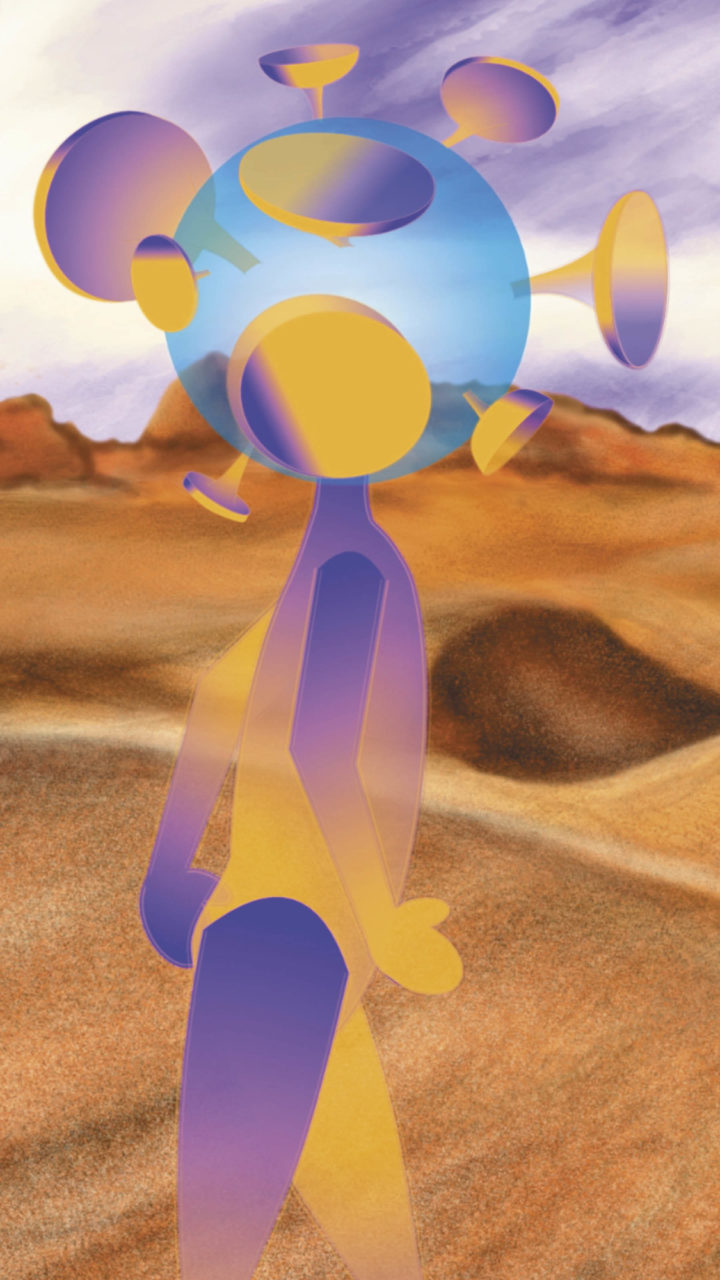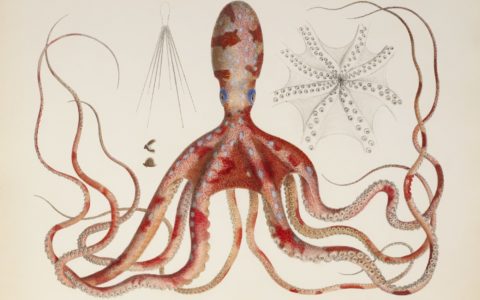Discover More: The Good Viruses
Like bacteria before them, viruses have often been branded as the biological baddies; germs that we have to defeat in order to stay healthy and hygienic. But, like bacteria before them, viruses are due for a re-think.
Published on 7th May 2021
The Discover More series is a collection of animations, blogs and interviews exploring a wide variety of topics to enrich your appreciation of the wonderful natural world that we are a part of. There are seven topics which will be released throughout 2021 and the animations are best viewed via Instagram @LinneanLearning.

Screenshot from our animation on Instagram
Like bacteria before them, viruses have often been branded as the biological baddies; germs that we have to defeat in order to stay healthy and hygienic. But, like bacteria before them, viruses are due for a re-think. What kinds of useful or necessary viruses exist? What ways are viruses in fact good for us?
There are more viruses on Earth than there are stars in the universe and if it were not for viruses, life on the planet would probably not exist, or at least we certainly wouldn't. Viruses help produce much of the oxygen we breathe and many genes that code for the placenta are actually viral in origin.
Viruses are present everywhere; in our surroundings, the depths of oceans, the soil, the deepest caves, and in every living being.
There are a few examples of viruses that have effects which can be viewed as advantageous to the hosts.
The rosy apple aphid can occasionally get infected by an insect virus, which results in the development of winged aphids that are smaller and have less offspring than their uninfected counterparts that do not develop wings. This can be advantageous for the aphid if the plant gets too crowded, as it can fly off to start a new colony.
Beetroot plants infected with the Cucumber mosaic virus are hardier when faced with drought conditions, and have significantly improved tolerance to freezing. In white clover, the White clover mosaic virus offers protection by making the plant less attractive to fungus gnats.
An interview to a 'virus ecologist'

We spoke with Marilyn J. Roossinck on the Oregon coast. Marilyn is a semi-retired professor at Pennsylvania State University who calls herself a 'virus ecologist' despite admitting the field not being a well-defined. Even virology itself is a fairly new field in terms of science (little over 100 years).
The following text is an edited interview between Marilyn and our Research Officer, Zia. Click here to watch the interview on Instagram.
To start simply, and potentially controversially, what exactly is a virus?
I wouldn't say what a virus is is controversial, but it's a very, very broad thing. There aren't any other entities that have such an incredibly broad definition as viruses do because they come in all kinds of sizes from 20 nanometers to a more than a micron. And they their genomes vary from one or two genes to being larger than bacterial genomes, at least some bacterial genomes.
I've worked on viruses for quite a while that have two functional genes... that's it! So they make two protein products. But then there are many viruses that make hundreds of protein products and maybe thousands.
They're so it's hard to define, because they're so broad, and so variable. They all have one thing in common though, they all are absolutely dependent on a living cell to carry out their lifecycle.
Could we hear a little bit more about what you have researched in relation to viruses.
I got interested in virus evolution pretty early in my career and initially I thought of viruses as being a fabulous way to study molecular evolution, because you can detect evolution of a virus in about 10 days, or probably less than 10 days.
But they evolve very rapidly, partly due to the fact that they often don't have any kind of correction in their replication system - what we call a proofreading. They have very tiny genomes. Even before we had the deep sequencing that we use now, you could still sequence an entire virus genome very easily and rapidly way back in the 90s.
So that was my first interest in virus evolution. I was looking at population genetics of viruses and I became interested in persistent viruses, which are viruses that stay with their hosts for many, many generations, probably thousands of years, that are not very well studied. They're very common in fungi and so I started looking at some fungal viruses and that led me to a virus that we found in Yellowstone National Park that was infecting a fungus.
The fungus was colonising a plant, and you had to have all three of those partners together, and the system was thermal tolerant. So these things were growing in very hot soils in the geothermal areas where normally plants never grow.
So that got me interested in viruses that were beneficial and I have to say that it was a great relief to me to find beneficial viruses, because I always loved viruses, and I hated that they had such a bad rap. So it was nice to start to realise that, there actually are viruses that are beneficial and so I've explored that quite a lot in the last number of years.
My last project I'm working on is actually about a virus that's beneficial for its host, which is a fungus, it's not very beneficial for the fungus, the host of the fungus, but it's beneficial for the fungus, itself.
So it turns out that a lot of viruses are beneficial and probably that's a more common scenario than a pathogen, but who wants to study something good. We like to study bad things, right? So humans, we like bad news. So I've kind of spent a lot of time talking and working on and writing about beneficial viruses, or what I like to call the good viruses.
I wanted to ask you how you first became interested in biology in the first place, and even ecology in particular.
Well, ecology came much later. I think I was interested in biology as a child and I suppose my idea of a biologist then was sort of a twentieth or nineteenth century naturalist, you know, observing and taking notes; and I told my mother, I can remember this as a really pretty young kid, I told my mother, that I wanted to be a biologist when I grow up, and she said, "That's not a job".
She just couldn't quite imagine what you would do if you were a biologist. However, in the long run, that didn't deter me.
So I met my first virus in a microbiology class, and it pretty much changed my whole life, because I just thought these are the coolest things ever. So I just changed my whole trajectory into biology and did the whole education process all the way through. And yeah, I've been researching viruses now for about 40 years.
Being a research scientist can be an interesting career but also difficult. Did experience any struggles in your path towards becoming a scientist?
In the early days of my career, my gender was a real struggle. A chairman of my PhD committee said to me, when after I passed my comprehensive exams, he said, "Well, you know, women make the best technicians, women with PhDs make the best technicians."
He also told me that he didn't really know why I wanted to be a scientist, because he heard I was getting married.
So there were a lot of things like that. I was in a department where there were no women on the faculty. My advisor was very supportive of me and there was no gender issue with my immediate advisor, but with the broader faculty, yeah, big, big problem.
There were things like that early on in my career, and even later I did a postdoc at Cornell University, and again, I was in a department without any women on the faculty.
Even today, you know, if you look at PhD students, they're probably fairly well balanced between male and female, but then as you go up the ladder it starts to change a lot and you find far less women as professors.
And then the other issue, at least in the United States, has been the lack of funding for science as the lack of an appreciation of science and even, you know, belief in science.
Do you think people understand that viruses are neither good nor bad, in the same way that it pretty widely understood that bacteria aren't purely bad?
I would say that we were moving in that direction. COVID put a bit of a kibosh on that but I think that we will get there. I think that viruses are going to be seen as part of our microbiome... as just part of the whole story.
I wrote a paper a few years ago called 'Move over bacteria! Viruses make their mark as mutualistic symbionts' and the point was that we need to include viruses in this thinking about microbes that are beneficial because viruses certainly fall into that category.
It's gonna take a little more time. I think the fear of viruses is deeper than the fear of bacteria in many ways. People have known for a long time that you need bacteria to ferment things and things like that, so I think people are more accepting of beneficial bacteria.
But for viruses it's going to take a little more time and COVID hasn't helped anything heavy in that in that light.
Thank you very much for all of this wonderful information and insight into the world of viral ecology, the world of viruses.
